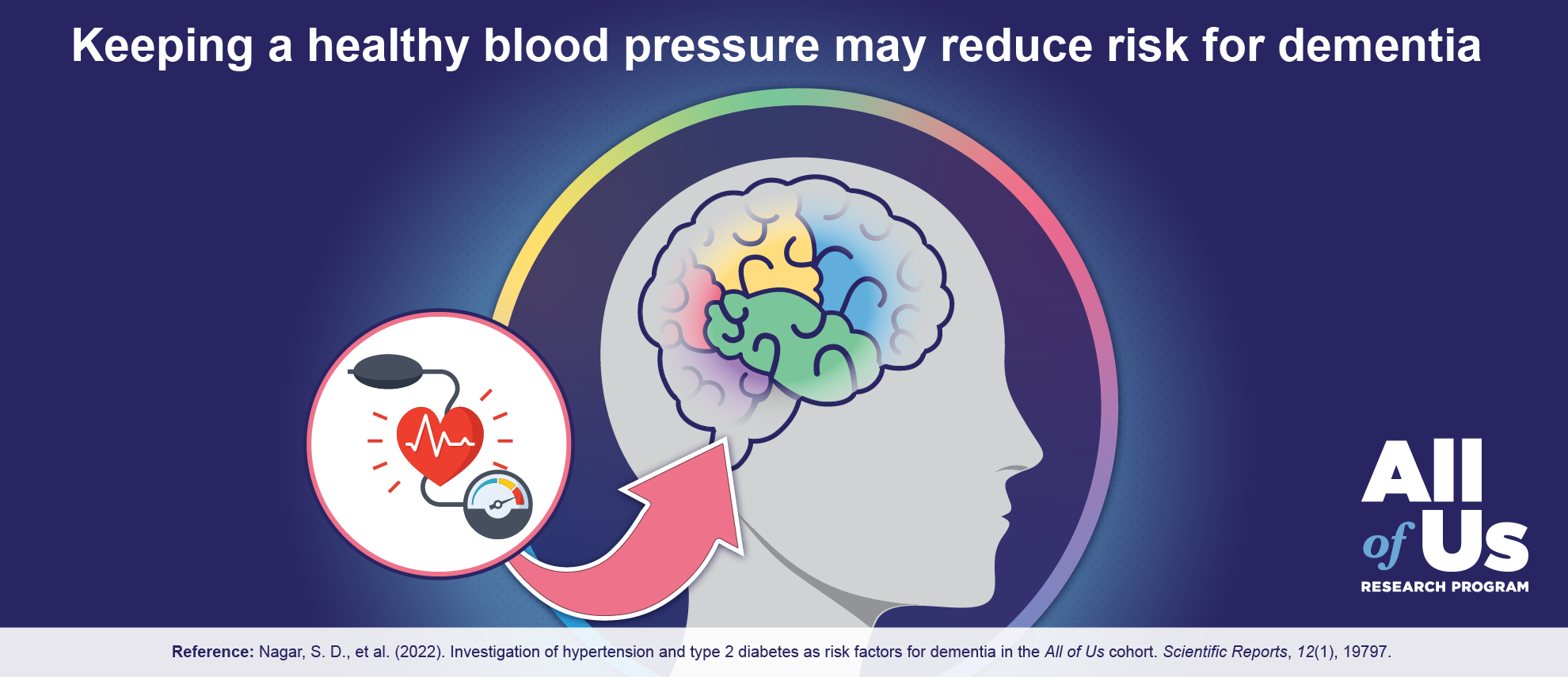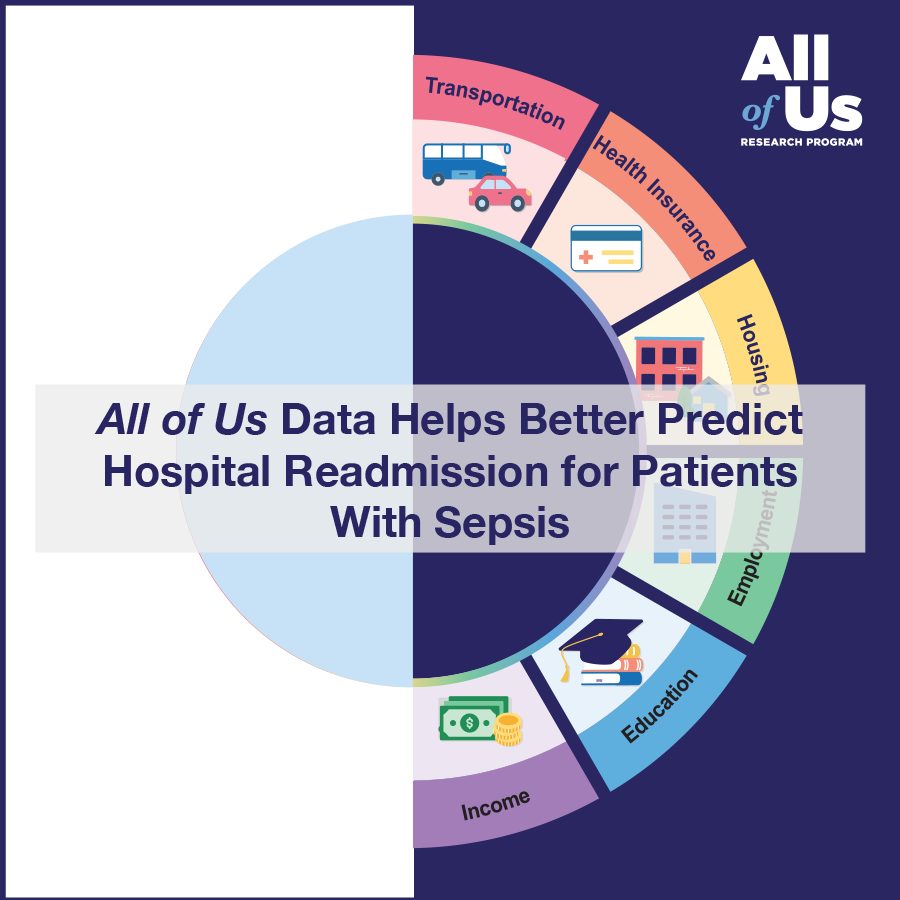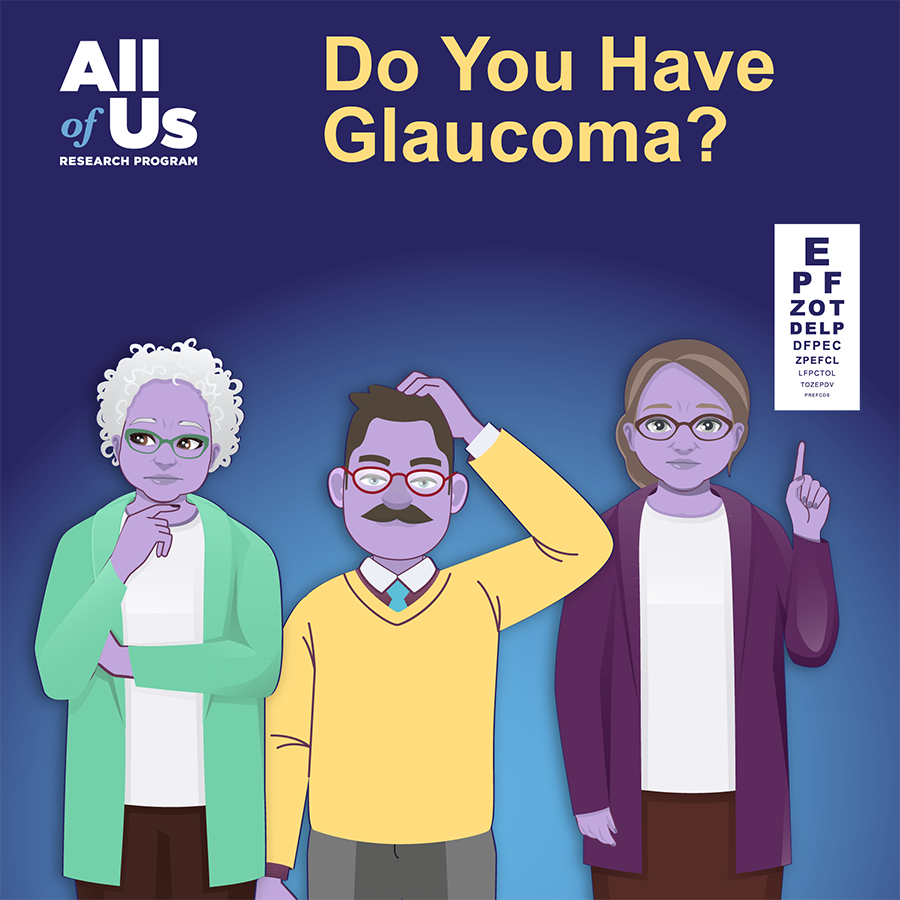
Key points
- International health experts say that high blood pressure and type 2 diabetes can increase a person’s chances of getting dementia.
- Data shared by All of Us participants confirms high blood pressure is a risk factor for dementia.
- Keeping a healthy blood pressure could lower one’s risk of getting dementia.
In the United States, almost 1 in 10 people ages 65 and older has dementia. Knowing risk factors for dementia may help us find ways to prevent Alzheimer’s disease and other dementias.
Sometimes having one disease can increase your chances of getting another disease. Experts from the World Health Organization (WHO) say that high blood pressure and type 2 diabetes can increase a person’s risk for dementia.
Researchers wanted to know if they would find similar results with All of Us data. The researchers did find a strong connection between high blood pressure and risk for dementia. The link between type 2 diabetes and dementia risk was less clear.
Their findings were published in Scientific Reports.
All of Us Data Meets WHO Data
To see if All of Us data would agree with the WHO findings, researchers looked at electronic health record data shared by more than 125,000 participants. The researchers confirmed that high blood pressure is a risk factor for dementia.
Type 2 diabetes was also related to dementia. But the researchers said this was probably because most participants with type 2 diabetes also had high blood pressure.
The researchers also looked at participant age, sex assigned at birth, and self-reported racial and ethnic identity. Their study confirmed that risk for dementia increases with age. They did not find a link between sex assigned at birth and dementia risk.
Different Risk for Different Groups?
Researchers also found that the link between high blood pressure and dementia was different depending on a person’s self-reported racial and ethnic identity.
- Black/African American participants with high blood pressure were 10 times more likely to have dementia than Black/African American participants with healthy blood pressure.
- Hispanic/Latino participants with high blood pressure were eight times more likely to have dementia than Hispanic/Latino participants with healthy blood pressure.
- White participants with high blood pressure were three times more likely to have dementia than White participants with healthy blood pressure.
The researchers did not look at why some groups with high blood pressure were more likely to have dementia than other groups.
What’s Next
Nearly 1 in 2 adults in the United States has high blood pressure. Lowering blood pressure today may help prevent Alzheimer’s disease or other types of dementia in the future.
This study shows how researchers can use All of Us data to better understand dementia risk in diverse populations. These results may help inform health care providers’ decisions. They also can help people better understand how to reduce their own risk of disease.
Future studies using All of Us data could explore why some groups are more likely to have dementia than other groups. Differences in disease risk may be caused by many factors. These include our lived experiences as well as our genes and biology. Together, these factors may cause health disparities.
Interested in All of Us?
- Read more research highlights.
- Learn about participation in the program.
Conduct research with All of Us
- Learn about opportunities for researchers.
- Find funding to support research using All of Us data.
- See more research projects made possible by All of Us data and tools.
 U.S. Department of Health & Human Services
U.S. Department of Health & Human Services



